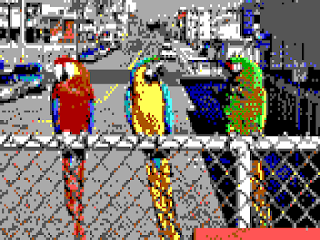Feelin' My Age (part 3): UCSD P-System Pascal
From the mid 1980s to early 90s I was proud to be a mature undergraduate student of the UK's remarkable Open University†, majoring in pure Maths.
I took a subsidiary computer science module as part of of the degree. Pascal was one of the languages that was taught (Prolog being another). At the time they taught Pascal using the P-system and UCSD Pascal.
So why does that make me feel my age? Well the Wikipedia Pascal Programming page discusses UCSD Pascal under the "Early Pascal Compilers" section! And the last release was in the mid eighties.
Now I did pass that course (with distinction I might add!) and I'd love to show you some of the code I wrote, but sadly it's on 5.25" floppies! Strangely enough, I don't have a suitable drive handy.
Which brings me on to another reason this makes me feel all dinosaur-like. To take the course I needed to get my hands on an IBM PC XT clone with CGA graphics, all of 512KB of RAM and a pair of 5.25" floppy drives. No hard drive in mine - too expensive! Such beasts were the current PCs at the time.
BTW, I resented buying that hateful piece of crap. I was happily using an upgraded Sinclair QL at the time (as was Linus Torvalds, apparently), and I thought, and still think, it was superior to that PC. Multitasking vs TSRs? SuperBASIC vs MS Basic? I know which I'd take. But more on that in another post.
Those were the days. Someone please bring me my pipe and slippers.
Trivia corner: What does the "P" in P-System mean
Many people, myself included until today, believe that the "P" stands for "Pascal", because the P-System is so closely associated with UCSD Pascal.
But, apparently, the P System is an implementation of a p code [virtual] machine where the "p" stands for "portable".
Beg to differ? That's what the comments are for.
† The OU was set up to allow UK citizens to take a degree while living a normal life: working, bringing up kids etc. Like other UK universities at that time, the honours degree was the equivalent of four years full time, but OU students are permitted to spread the time out to suit their home circumstances. I had very poor health at the time, so this was a perfect arrangement for me.




Comments
Post a Comment
Comments are very welcome, but please be aware that I moderate all comments, so there will be a delay before your comment appears.
Advertising spam and the rare abusive, hateful or racist comments will be blocked and reported.
Finally, should you have a query about, or a bug report for, one of my programs or libraries please use the relevant issue tracker rather than posting a comment to report it.
Thanks